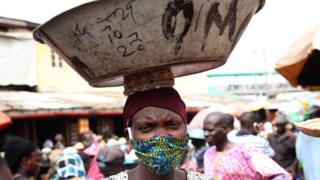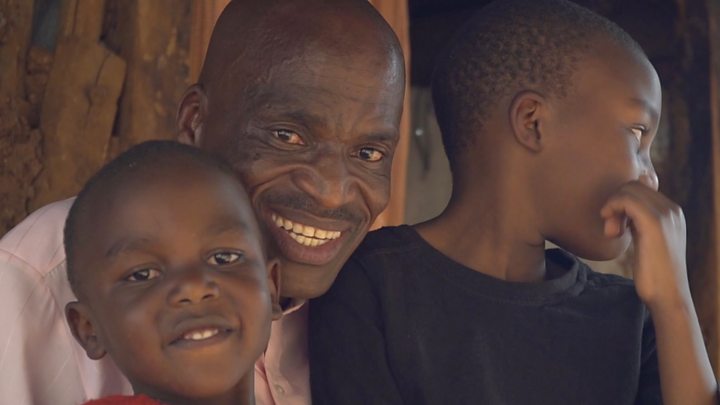 Image copyright EPA
Image copyright EPA More than two-thirds of people surveyed in 20 African countries said they would run out of food and water if they had to stay at home for 14 days.
Just over half of the respondents said they would run out of money.
The Africa Centres for Disease Control and Prevention research was conducted to help governments map out future policies on how to tackle coronavirus.
It warns that if measures are not adapted to local needs, there is a risk of unrest and violence.
The report, Using Data to Find a Balance, shows the difficulties of maintaining strict lockdown policies on the continent.
The research was conducted in 28 cities in 20 countries to assess the impact of the crisis and people’s attitudes to restrictions imposed.
Several African countries which had responded swiftly to the coronavirus threat are now easing restrictions.
“The proliferation of peaceful protests demanding government relief is evidence of the strain some people are already under, and highlights gaps in current responses,” the report says.
But it found that there was currently general support for restrictions that had been put in place.
You may also be interested in:
‘It is hunger I am worried about, not a virus’

Media playback is unsupported on your device
The researchers recommend that governments need to communicate more effectively with their citizens and properly inform them about the reasons behind the measures that are being taken.
“What we’ve learnt from Ebola and other outbreaks is that countries need to decentralise the response to the community level and increase their capacity to identify and diagnose cases,” said Matshidiso Moeti, Africa director of the World Health Organization (WHO), which also commissioned the research.
Governments in Africa have been facing a dilemma when deciding how best to respond to the pandemic.
Millions need to leave their homes every day to go and work to feed their families.
“Countries now must find a balance between reducing transmission while preventing social and economic disruption,” the report says.
So far Africa has recorded nearly 50,000 cases of Covid-19, the respiratory infection caused by coronavirus, with just under 2,000 deaths.
The report recommends that while caseloads remain low, countries on the continent need to “build public health capacity to test, trace, isolate, and treat cases” as the necessary foundation for reopening societies.
Click Here to Visit Orignal Source of Article https://www.bbc.co.uk/news/world-africa-52557464


